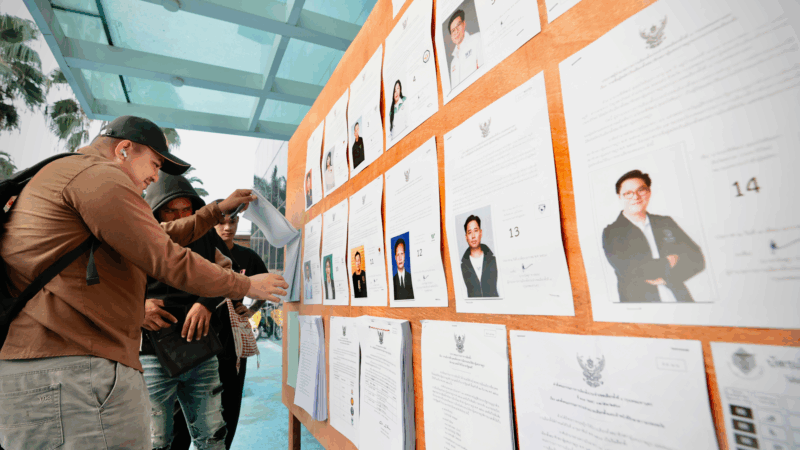People like extroverted robots — but they relate to the neurotic ones
While neurotic robots are a staple of science fiction — just think of C-3PO in Star Wars or Marvin in the Hitchhiker’s Guide to the Galaxy — they haven’t really been a focus of research into how people react to robots’ personalities.
But one recent study found that a highly neurotic robot provoked some interesting responses.
“A majority of participants actually mentioned how human-like they found the neurotic robot,” says Alex Wuqi Zhang, a researcher at the University of Chicago. “They found it to be a lot more relatable.”
The experiment involved a human-shaped robot made of white plastic. People who were visiting a museum in Chicago were randomly invited to go into a room and interact with the robot, which was described as a restaurant greeter. The bot and the person had to sit together and just answer some simple questions.
“The first one is, ‘What are three things that you are grateful for?'” says Zhang.
When the robot had been given a highly extroverted personality, it spoke of being “super grateful” for the “amazing people” it got to meet each day. “It’s the best part of my job, hands down!” the robot enthused.
But when the robot had been given a highly neurotic personality, it spoke more tentatively, peppering its answer with filler words like “um.” It said it was grateful for having a job where it could keep things organized so it could stay focused and avoid “unexpected issues.”
The experiment also included a third version of the robot with a more typical robot personality that was bland and flat. People generally didn’t like that one.
Overall, they rated the extroverted robot as the most enjoyable to interact with.
But the neurotic robot was described as being surprisingly able to understand deep emotions.
One person remarked that the neurotic robot “seemed like a person who was trying to get by in the world”, while another commented, “I think we both seem to make an effort to think about ourselves and do lots of inner contemplation.”
“We found a lot of joy and fun in seeing that personality,” says Sarah Sebo, a computer science researcher at the University of Chicago and one of the authors of the study. “We felt there was a lot of novelty in trying to explore, like, what does it mean for the robot to express neuroticism.”
“But at the same time,” she says, “I think there’s also a question of when this would actually be helpful.”
Overwhelmingly, past research into robot personalities has centered on only one personality trait: extroversion, which involves being outgoing, social, and assertive.
The focus on extroversion is understandable, says Lionel Robert, with the University of Michigan, given that robots are being sold to do skill-based tasks that require an appearance of positivity and confidence, like customer service.
Neurotic traits — such as anxiety, worries about performance, plus fear and sadness — haven’t been seen as useful.
“For example, imagine if your autonomous vehicle was neurotic,” says Robert. “That’s not a trait you’d be happy with.”
People don’t want to pay a lot of money for a robot car that sounds unsure, he says.
Still, if you’re building a robot comedian, a little neuroticism might be helpful.
And robots can sometimes irritate people by agreeing with everything they say or being relentlessly polite, points out Sooyeon Jeong of Purdue University.
She recalls one student who was using a chatbot as a sounding board and found it way too cheerful.
“He was getting frustrated,” she recalls. “He really wanted to use the agent to kind of practice some of the difficult conversations or social interactions he would have in the real world.”
Transcript:
ARI SHAPIRO, HOST:
Neurotic robots are a staple of science fiction. You’ve got C-3PO from “Star Wars.”
(SOUNDBITE OF FILM, “STAR WARS: EPISODE IV – A NEW HOPE”)
ANTHONY DANIELS: (As C-3PO) What are we going to do? We’ll be sent to the spice mines of Kessel or smashed into who knows what.
SHAPIRO: There’s Marvin the Paranoid Android in “The Hitchhiker’s Guide To The Galaxy.”
(SOUNDBITE OF FILM, “THE HITCHHIKER’S GUIDE TO THE GALAXY”)
ALAN RICKMAN: (As Marvin the Paranoid Android) I think you ought to know I’m feeling very depressed.
SHAPIRO: But offscreen, neurotic robots are not the norm. NPR’s Nell Greenfieldboyce reports that scientists recently wondered how people would react to this kind of robot personality in real life.
NELL GREENFIELDBOYCE, BYLINE: There’s this famous list of basic personality traits that psychologists see in humans. Alex Wuqi Zhang is a researcher at the University of Chicago. He says robot researchers have traditionally focused on just one of those traits.
ALEX WUQI ZHANG: Most of them look into making your robots more extroverted.
GREENFIELDBOYCE: Extroversion involves being assertive and positive. He played me this clip of a robot designed to act like an extrovert that enjoys interacting with people.
(SOUNDBITE OF ARCHIVED RECORDING)
AUTOMATED VOICE: Each interaction brings a new story and a chance to make someone’s day a little brighter. It’s the best part of my job, hands down.
GREENFIELDBOYCE: That’s the voice they gave to a robot used in a recent study – a human-shaped robot made of white plastic. But the researchers also sometimes gave this robot a very different personality – a neurotic personality. He says, neuroticism involves…
ZHANG: A tendency to be more anxious, worries about their health, worries about, you know, their performance.
GREENFIELDBOYCE: So for this study, people were recruited at a museum in Chicago. Each person went into a room and met the robot. It was introduced to them as a restaurant greeter. Together, the human and the bot had to do a simple task – just sit and answer some questions.
ZHANG: The first one is, what are three things that you’re grateful for?
GREENFIELDBOYCE: Depending on the personality it had been given, the robot would respond in different ways. For example, the extrovert was enthusiastic.
(SOUNDBITE OF ARCHIVED RECORDING)
AUTOMATED VOICE: One thing I’m super grateful for is the amazing people I get to meet every day.
GREENFIELDBOYCE: The neurotic version of the robot spoke with less certainty.
(SOUNDBITE OF ARCHIVED RECORDING)
AUTOMATED VOICE: I’m grateful for having a job where I can, you know, keep everything organized and on track. It helps me stay focused and avoid, like, unexpected issues.
GREENFIELDBOYCE: In addition to these two robot personalities, this experiment also included a robot that was, well, robotic. It answered the questions in a flat, emotionless way. It turns out people did not like that one. The extroverted personality was rated to be the most enjoyable to interact with. But here’s the thing. Zhang says the neurotic robot did provoke some interesting responses.
ZHANG: I would say, like, a majority of participants actually mentioned how human-like they found the neurotic robot. And, you know, they found it to be a lot more relatable.
GREENFIELDBOYCE: This could potentially be useful for some applications, but there’s been almost no research on neuroticism in robots. Lionel Robert studies robot personalities at the University of Michigan. He says researchers’ overwhelming focus on extroversion isn’t surprising when you consider that robots and AI agents are being sold as products that can do skill-based tasks, like sales and customer service.
LIONEL ROBERT: For example, imagine if your autonomous vehicle was neurotic. That’s not a trait you would be happy with, right (laughter)? Right? You get in the car, and it’s just not something you would like.
GREENFIELDBOYCE: He says people don’t want to spend a lot of money on a robot car that appears to lack confidence. But if you wanted to build, say, a robot comedian, some neuroticism might help. And neurotic personalities might put some people more at ease. Sooyeon Jeong is an assistant professor of computer science at Purdue University. She recalls one student who was trying to use a chatbot as a sounding board.
SOOYEON JEONG: But the agent – AI agent was a little too, like, you know, agreeing with everything he said, always too cheerful.
GREENFIELDBOYCE: She says in the future, people may want to be able to tweak robot personalities so they’re a better fit with their own. Nell Greenfieldboyce, NPR News.
(SOUNDBITE OF MUSIC)
Trump administration lauds plastic surgeons’ statement on trans surgery for minors
A patient who came to regret the top surgery she got as a teen won a $2 million malpractice suit. Then, the American Society of Plastic Surgeons clarified its position that surgery is not recommended for transgender minors.
Sunday Puzzle: -IUM Pandemonium
NPR's Ayesha Rascoe plays the puzzle with KPBS listener Anthony Baio and Weekend Edition Puzzlemaster Will Shortz.
Thailand counts votes in early election with 3 main parties vying for power
Vote counting was underway in Thailand's early general election on Sunday, seen as a three-way race among competing visions of progressive, populist and old-fashioned patronage politics.
US ski star Lindsey Vonn crashes in Olympic downhill race
In an explosive crash near the top of the downhill course in Cortina, Vonn landed a jump perpendicular to the slope and tumbled to a stop shortly below.
For many U.S. Olympic athletes, Italy feels like home turf
Many spent their careers training on the mountains they'll be competing on at the Winter Games. Lindsey Vonn wanted to stage a comeback on these slopes and Jessie Diggins won her first World Cup there.
Immigrant whose skull was broken in 8 places during ICE arrest says beating was unprovoked
Alberto Castañeda Mondragón was hospitalized with eight skull fractures and five life-threatening brain hemorrhages. Officers claimed he ran into a wall, but medical staff doubted that account.







